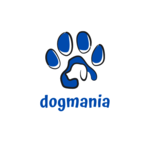Understanding Grain-Free Dog Food: Is It Right for Your Pet?
In recent years, grain-free dog food has become a popular choice among pet owners, driven by the belief that a diet free of grains more closely resembles the natural diet of dogs’ wild ancestors. However, with this trend comes a mix of opinions and concerns regarding its nutritional benefits and potential health risks. Understanding the advantages and drawbacks of grain-free dog food can help you make an informed decision about whether it is the right choice for your pet.
What is Grain-Free Dog Food?
Grain-free dog food is formulated without the inclusion of grains such as wheat, corn, rice, barley, and oats. Instead, it uses alternative carbohydrate sources like potatoes, sweet potatoes, peas, lentils, and chickpeas. Proponents of grain-free diets argue that grains are unnecessary fillers that may contribute to allergies and digestive issues in dogs.
Benefits of Grain-Free Dog Food
1. Allergy and Sensitivity Reduction:
Many dogs suffer from food allergies or sensitivities, with grains being common culprits. Grain-free diets can help alleviate symptoms like itching, skin irritations, and gastrointestinal upset in dogs with grain sensitivities.
2. Improved Digestion:
Grain-free dog foods often contain higher levels of protein and fat, which can be easier for some dogs to digest compared to high-carbohydrate diets. The inclusion of alternative carbohydrates like sweet potatoes and peas can also promote better digestion.
3. Increased Energy Levels:
The higher protein content in grain-free diets can support lean muscle development and maintenance, leading to increased energy levels and overall vitality in active dogs.
4. Better Coat and Skin Health:
Grain-free dog foods often include omega-3 and omega-6 fatty acids, which are beneficial for maintaining healthy skin and a shiny coat. These nutrients can help reduce inflammation and prevent dry, itchy skin.
Potential Drawbacks of Grain-Free Dog Food
1. Nutritional Imbalance:
Not all grain-free dog foods are created equal. Some may lack essential nutrients that grains provide, such as certain vitamins and minerals. It’s crucial to ensure that the chosen grain-free diet is balanced and complete.
2. Cost:
Grain-free dog foods can be more expensive than their grain-inclusive counterparts. The use of higher-quality ingredients and alternative carbohydrate sources contributes to the increased cost.
3. Potential Heart Disease Risk:
Recent studies have raised concerns about a potential link between grain-free diets and a heart condition known as dilated cardiomyopathy (DCM) in dogs. While the exact cause is still under investigation, it’s essential to consult with a veterinarian before switching to a grain-free diet, especially for breeds predisposed to DCM.
Is Grain-Free Right for Your Dog?
The decision to switch to a grain-free diet should be based on your dog’s specific needs and health status. Here are some factors to consider:
1. Consult Your Veterinarian:
Always consult with your veterinarian before making significant changes to your dog’s diet. They can provide personalized recommendations based on your dog’s health history, age, breed, and activity level.
2. Assess Your Dog’s Health:
If your dog is experiencing digestive issues, skin problems, or signs of food allergies, a grain-free diet may be worth considering. However, if your dog is healthy and thriving on their current diet, a switch may not be necessary.
3. Monitor for Changes:
After transitioning to a grain-free diet, monitor your dog for any changes in their health, energy levels, and overall well-being. Any adverse reactions should be reported to your veterinarian promptly.
4. Choose Quality Products:
Opt for high-quality grain-free dog foods that list meat or fish as the primary ingredient and include a balanced mix of vegetables and fruits. Avoid products with excessive fillers and artificial additives.
conclusion
Grain-free dog food can offer benefits such as improved digestion, reduced allergies, and better skin and coat health for some dogs. However, it’s not a one-size-fits-all solution and may not be necessary for every pet. Potential risks, such as nutritional imbalances and the suspected link to heart disease, underscore the importance of careful consideration and veterinary guidance when choosing a grain-free diet for your dog.
Ultimately, the best diet for your pet is one that meets their individual nutritional needs and supports their overall health and well-being. By staying informed and working closely with your veterinarian, you can make the best dietary choices for your furry friend.



leave me your thoughts here